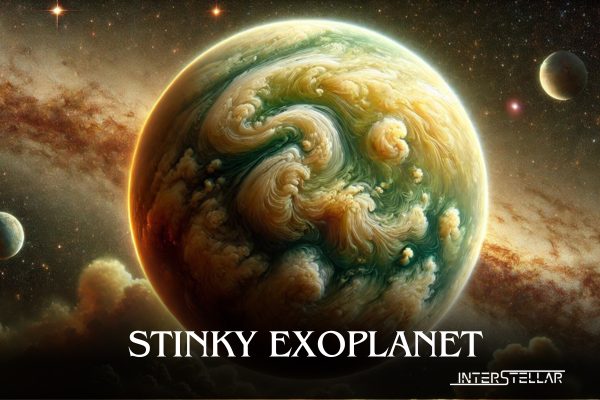HD 189733b: A Deeper Look at an Extreme Exoplanet
Discovery and Initial Observations
Discovered in 2005, HD 189733b has been known for its extreme conditions. This gas giant, slightly larger than Jupiter, boasts a striking cobalt blue colour. Its atmosphere is notorious for fierce winds and sideways rain made of molten glass. However, recent findings have added another layer to its extremity.
New Findings from James Webb Space Telescope
Researchers have discovered trace amounts of hydrogen sulfide in HD 189733b’s atmosphere. This compound, known for its rotten egg smell, marks a significant discovery, being the first detection of hydrogen sulfide on any exoplanet.
“Yes, the stinky smell would certainly add to its already infamous reputation. This is not a planet we humans want to visit, but a valuable target for furthering our understanding of planetary science,” stated astrophysicist Guangwei Fu of Johns Hopkins University, lead author of the study published in Nature.
Characteristics of HD 189733b
HD 189733b is a “hot Jupiter,” a type of gas giant similar to Jupiter but much hotter due to its proximity to its host star. This exoplanet orbits its star 170 times closer than Jupiter does to the sun, completing an orbit every two days compared to Jupiter’s 12 years. The side of the planet facing its star reaches temperatures of about 1,700 degrees Fahrenheit (930 degrees Celsius).
Located 64 light-years away in the constellation Vulpecula, HD 189733b is relatively close in cosmic terms. This proximity makes it an excellent candidate for detailed study. The host star is smaller and cooler than our sun, and it is part of a binary system.
Advanced Observations with Webb
The James Webb Space Telescope, operational since 2022, observes a wider wavelength range than previous telescopes, allowing for more comprehensive studies of exoplanet atmospheres. This advanced capability enabled the detection of hydrogen sulfide, water, and carbon dioxide in HD 189733b’s atmosphere.
“Our research finds that HD 189733b is more similar to Jupiter than previously known,” said Arizona State University astrophysicist and study co-author Luis Welbanks. Despite its higher temperature, this exoplanet shares similarities with Jupiter, including trace amounts of hydrogen sulfide in its atmosphere.
Implications for Planetary Science
Understanding the composition of HD 189733b helps scientists learn more about planetary formation and the uniqueness of our solar system. With the detection of water, carbon dioxide, and hydrogen sulfide, researchers can assess the planet’s elemental makeup, shedding light on its formation process.
“While we are not searching for life on HD 189733b – it is too hot, made up mostly of hydrogen and helium, it’s not like Earth, et cetera – understanding its atmosphere allows us to understand how physics and chemistry behave under different environments and to begin to put together the ‘recipe’ for forming planets,” Welbanks explained.
Conclusion
The study of HD 189733b offers valuable insights into planetary science, enhancing our understanding of the universe’s diverse environments. The discoveries made by the James Webb Space Telescope continue to push the boundaries of our knowledge, revealing the complexities of planets beyond our solar system.


